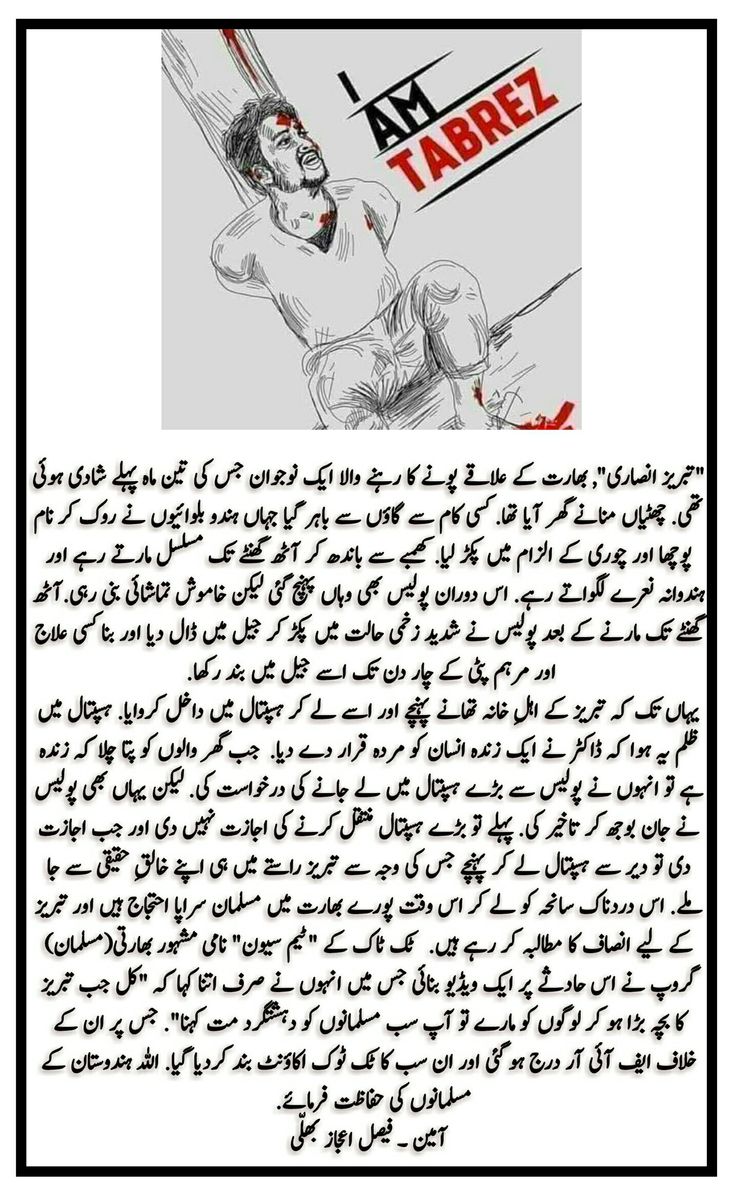Tabrez Ansari. (Video grab)
Freedom is indivisible. “The chains on any one of my people,” Nelson Mandela reminded us, “were the chains on all of them, the chains on all of my people were the chains on me.”
There are many things that trouble me about India today. One is our ever-mounting tolerance of the open and profound injustice done to “other people”. A boy stabbed to death on a train does not trouble me because he is Muslim;
a young girl brutally gang-raped does not stir my outrage because she is Dalit; an entire people locked down for over a month deserve it because they do not accept India to be their country; and nearly two million people excluded as citizens in Assam do not trouble me because they are “infiltrators” (even if they were born in and love this nation).
Advertisement
India’s criminal justice system has always been biased against disadvantaged castes, women and Muslims. Few people who organised and participated in caste and communal massacres and rapes have ever been punished. But in recent years, this official bias has become more open, brazen and unapologetic.
A Muslim charged with terror crimes can spend 14, even 23, years in jail, before he steps out, innocent. A Hindu charged with terror is likely to soon walk free, and might even be elected to Parliament. Criminal cases after the 2013 Muzaffarnagar riots collapse wholesale with barely a whimper of protest.
